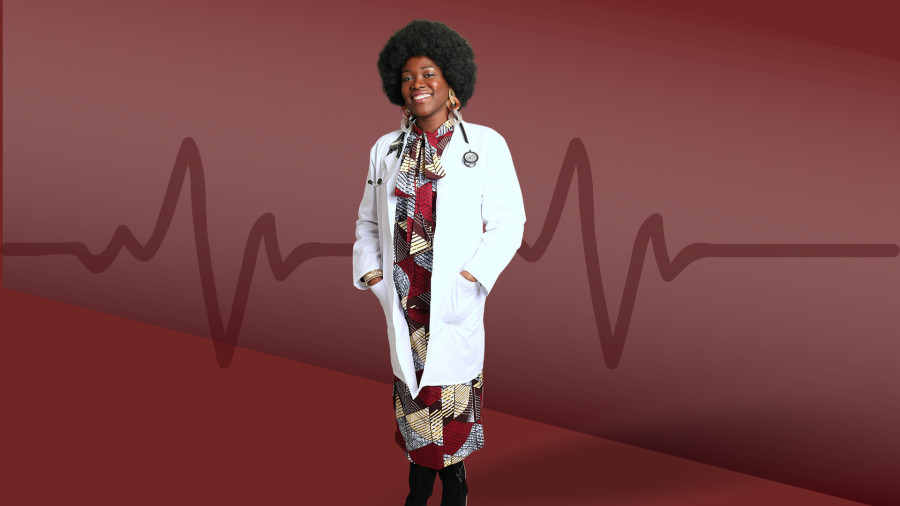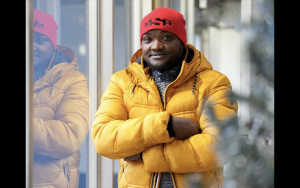And yet, despite the historical and present-day manifestations of structural violence, we have survived and thrived as a collective. Our collective resistance to overcome is astounding, particularly from a healthcare perspective. Despite significant efforts to oppress us, we are still here thanks to the work of our Ancestors who fought for our survival and rights.
Unfortunately, very few health providers understand our challenges in the system and how we remain still standing. The truth must be told: Anti-Black racism creates very real health disparities that impact us collectively and individually.
That’s why I’m so proud and excited that my colleague and ‘sista in systemic change’ Dr. Roberta Timothy, has developed a new and historical Master in Public Health (MPH) in Black Health at the Dalla Lana School of Public Health (DLSPH) at the University of Toronto.
We are part of a movement to change medical and health culture. On my end, I’m co-leading work with Dr. OmiSoore Dryden at Dalhousie University, which will provide general introductory online courses to health professionals across the country on anti-Black racism and Black health. We will deliver the resources next year, which will coincide with the MPH launch in Black Health.
But what Dr. Timothy is offering is a deeper dive, a greater immersion into the topic of Black health, and I’m incredibly excited for this educational offering. The program is welcoming 10 students in Fall 2023. Core courses will include a sociohistorical overview of Black health, chronic diseases and reproductive health in a lifespan; decolonizing theory and methods in Black health research; transnational Black health policy and practice; and Black resistance in health.
I think it’s important to understand who Dr. Timothy is. She did not pick up the ‘anti-racism megaphone’ yesterday. She has been a community leader for over four decades, working inside and outside the structural paradigms to advance Black health and rights.
As an academic, Dr. Timothy joined the Dalla Lana School of Public Health in 2019 after teaching global health, ethics and human rights at York University’s School of Health Policy and Management. She earned her Ph.D. from the University of Toronto in adult education, community development and Women’s Studies.
This is why Dr. Timothy is the right person to lead this work. We need transformation in our healthcare system and public health, starting with education (we need more than that, I know, but it’s the first step). There are many ways in which anti-Black racism impacts our health, whether death by a thousand cuts of injustice or a major traumatic event. This understanding is a critical missing link that could help to improve patient-provider relationships. We don’t need any more of our pain ignored in the waiting room, our brothers being unnecessarily physically restrained in mental health care, or mothers in our communities fearing being ignored when giving birth.
It would be powerful to have healthcare providers and public health leaders who genuinely understand how anti-Black racism can impact our health and the health of our loved ones. Imagine if the doctor providing your care understood the constant stress due to the ridiculous performance required of us to be ‘parenting while Black.’ Or living through the vicarious trauma of seeing videos where Police murder black people. What about a doctor who understands how we cope with constantly being doubted, questioned, or gaslighted at work until you doubt your abilities, self-worth or sanity? What if they understood that, even if they didn’t look like us?
Even if you have had positive experiences or been blessed not to have to deal with our healthcare system, wouldn’t it be comforting to go for a checkup and have a doctor or nurse who understood that we are not a monolith? We have different histories, cultures, religions, sexual identities, and abilities. We are not just ‘Black.’
What if practitioners were educated on the incredible wisdom passed down over centuries across the African diaspora? Whether it’s life lessons, our healthy foods (shout out to okra!), our diverse cultural practices, or the remarkable, various ways we tend to come together to indulge in the joy of life. Practitioners should also take such stories and strategies seriously because they matter to our health. They have kept us alive despite determined efforts to the contrary.
As descendants of the Motherland, we have much to teach the world, and I suspect this is just the beginning. Creating Black Health Education programs is a giant step in the right direction; in my work, I am stepping in that direction too.
Much respect and thanks to Dr. Roberta Timothy, leading Canada’s first MPH in Black Health. Let’s celebrate our sista leading the way towards change in healthcare and public health— one that will hopefully get on track to treating Black folks with dignity as a standard practice.

 By
By 








